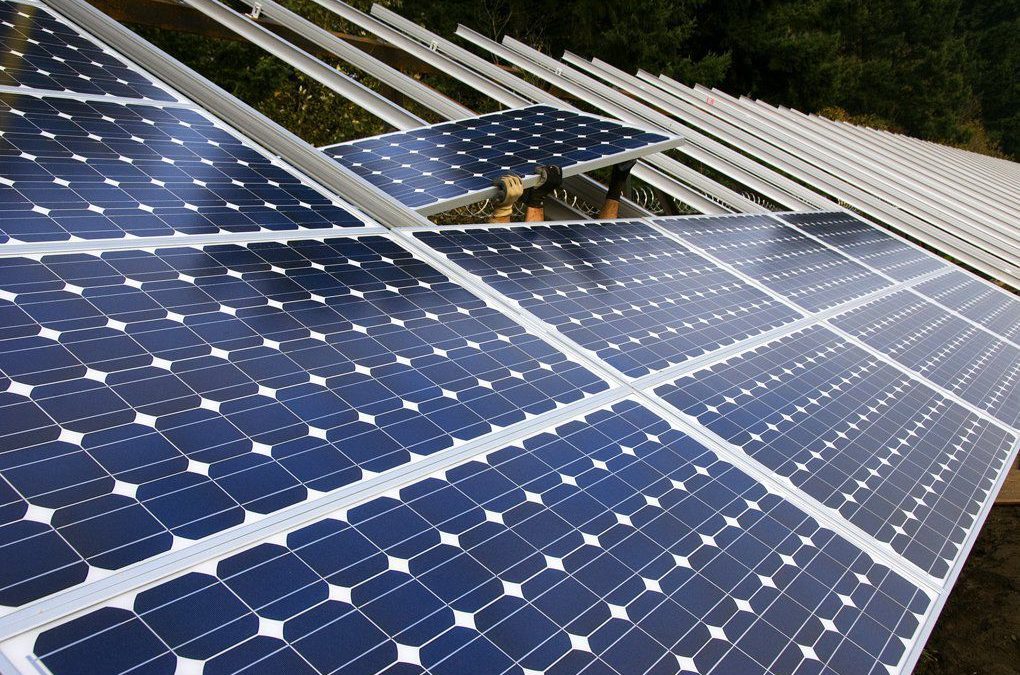
by Michael Vickerman | Mar 16, 2021 | Policy, PSC Priorities, Public Service Commission, RENEW Wisconsin, Renewables, Solar, Utilities
After simmering on the proverbial back burner for nearly two years, the third-party financing issue relating to customer-sited solar power has been thrust back into the public spotlight as pressure builds to resolve the legal questions surrounding it.
The reemergence of this issue can be traced to two parallel developments. The first is a Public Service Commission (PSC) proceeding moving toward a ruling settling the legality of third-party-owned solar systems serving individual retail customers. The second is a lawsuit recently filed by the Midwest Renewable Energy Association in Portage County Circuit Court, challenging the PSC’s authority to regulate the financing of behind-the-meter systems that serve host customers only.
The PSC proceeding began in March 2019 when Eagle Point Solar, a Dubuque-based solar contractor, filed a complaint against We Energies for blocking the installation of rooftop arrays serving the City of Milwaukee. In its complaint, Eagle Point contends that PSC Chapter 119, which regulates the interaction between small-scale electricity producers and the utility grid, does not give We Energies the right to deny interconnection to a customer based on how the generating equipment is financed. According to We Energies, however, a third party owner of the equipment that supplies electricity to one customer under contract should be regulated as a public utility.
Following an extended period of legal maneuvering, the PSC set in motion a process for investigating Eagle Point’s complaint (Docket 9300-DR-104). In so doing, it expanded the scope of the proceeding to consider the public utility question that led to the interconnection denial. When the parties finished entering evidence into the hearing record, the PSC opened a public comment window on the proceeding, which ended on February 23rd.
Supporters of third-party financing sprang into action, led by RENEW. To illustrate the breadth and depth of support for opening up the solar market in this fashion, RENEW circulated an action alert encouraging those who care about this issue to submit comments supporting Eagle Point’s position. Networks such as Wisconsin Climate Table, Wisconsin Health Practitioners for Climate Action, and our own solar contractor e-mail list helped circulate RENEW’s alert beyond our own activist base. At the same time, organizations such as 350 Madison and Environmental Law and Policy Center (ELPC) asked their activists and members to post comments on the PSC website.
As a result of our combined efforts, a total of 336 individuals and organizations weighed with their views on the Eagle Point matter. Of that, 327 comments expressed support for opening the market to allow third-party ownership of solar electric systems in Wisconsin. In that overwhelming display of support, several themes prevailed, including the following:
- Third-party financing is already expressly authorized in 28 states;
- Allowing third-party-owned solar systems is consistent with Wisconsin case law;
- The threat of being regulated as a public utility discourages businesses from providing solar power generated onsite to retail customers through leases and sale agreements;
- Third-party financing would make solar power affordable to low-to-moderate income households and nonprofit entities such as schools;
- Expanding solar financing options would help communities reduce their reliance on harmful fossil energy sources; and
- Expanding solar financing options would invigorate local economies.
These arguments track closely to those articulated by Wisconsin solar contractors and consultants in a March 2019 filing urging the Commission to approve Eagle Point’s petition. Similar to our efforts during the comment period, RENEW shaped the themes in that statement and pulled together a coalition of market actors to demonstrate support for third-party financed solar energy. In the intervening two years, Eagle Point Solar and the City of Milwaukee labored to amass a set of facts and legal arguments to support a finding that WEPCO’s action was unlawful.
The merits of this case are clear-cut, as are the regulatory remedies. Other states that regulate electric utilities have taken steps to affirm the legality of third-party-financed solar, most notably Iowa, which did so in 2014, the result of a long and expensive legal fight waged by Eagle Point. In contrast to Iowa, the State of Wisconsin has allowed this issue to languish for many years without resolution.
But with the filing of briefs from parties on March 10th, the Eagle Point proceeding has finally reached the home stretch. The strong outpouring of public support for third-party financed solar tells us that a policy call from the PSC is long overdue.
In a brief representing RENEW and other solar advocates, we urged the PSC to take the following actions:
- Order WEPCO to interconnect the City of Milwaukee solar projects, regardless of how those projects are financed;
- Clarify that a utility may not deny interconnection based on project ownership, and
- Clarify that third-party owners of customer-sited distributed generation are not “public utilities” under Wisconsin law.
RENEW would like to thank Eagle Point Solar and the City of Milwaukee for leading this crucially important regulatory battle, ELPC for drafting a particularly persuasive legal brief on behalf of clean energy advocates, and the 327 commenters who affirmed their desire for an expanded solar marketplace free of utility interference.
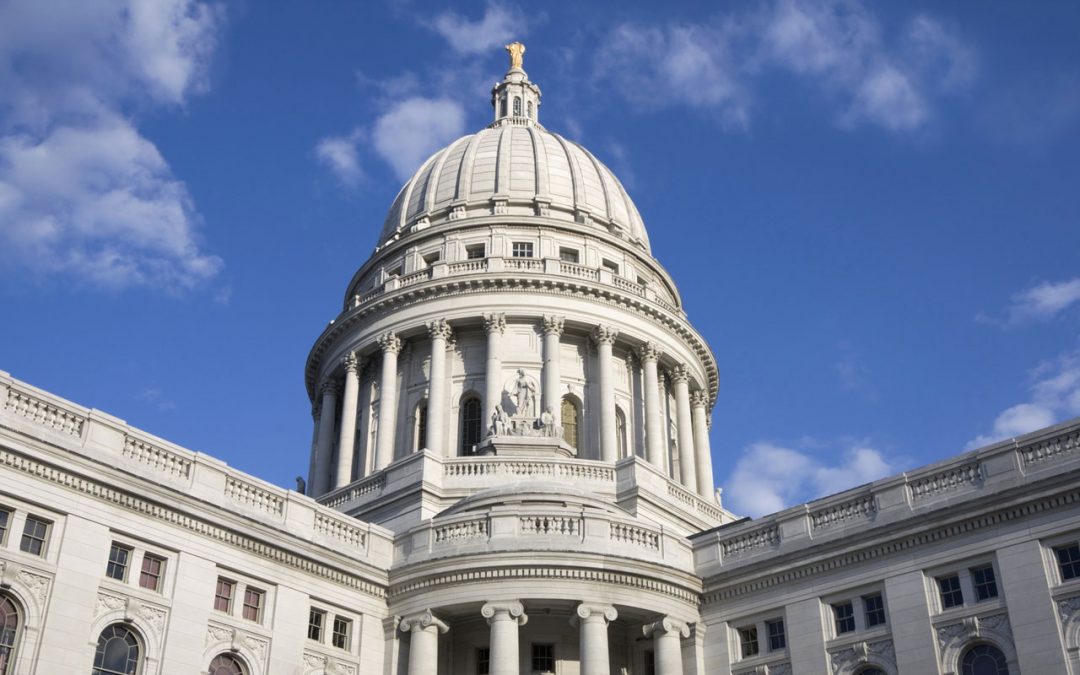
by Jim Boullion | Feb 24, 2021 | Legislative Watchlist, Policy, Renewables
On Tuesday, February 16th Governor Tony Evers presented his 2021-23 Budget Bill proposal, SB 111. Among the 1,848 pages of the $91 billion budget RENEW Wisconsin has identified 28 proposals that are directly related to clean energy and energy efficiency. A short summary of the individual issues can be downloaded HERE.
The bill now goes to the Joint Finance Committee (JFC) for review. The JFC will hold a series of public hearings, likely in April, to gather public comments and then will spend the next several months amending the bill. Once the bill passes out of Joint Finance, it goes to both houses of the legislature for final review and potential amendment there. The Session Calendar indicates that the legislature plans to finish the budget and adjourn for the summer by June 30th.
RENEW Wisconsin will be closely monitoring the progress of the bill and working to pass as many of the Governor’s clean energy and efficiency proposals as possible. If you would like to talk to your legislators about any of these provisions, or if you have ideas that you think the State should adopt into the Budget Bill, you can click here for a directory to find contact info for your state representative.
If you have any questions or comments feel free to contact Jim Boullion, RENEW Wisconsin’s Director of Government Affairs at jim@renewwisconsin.org.
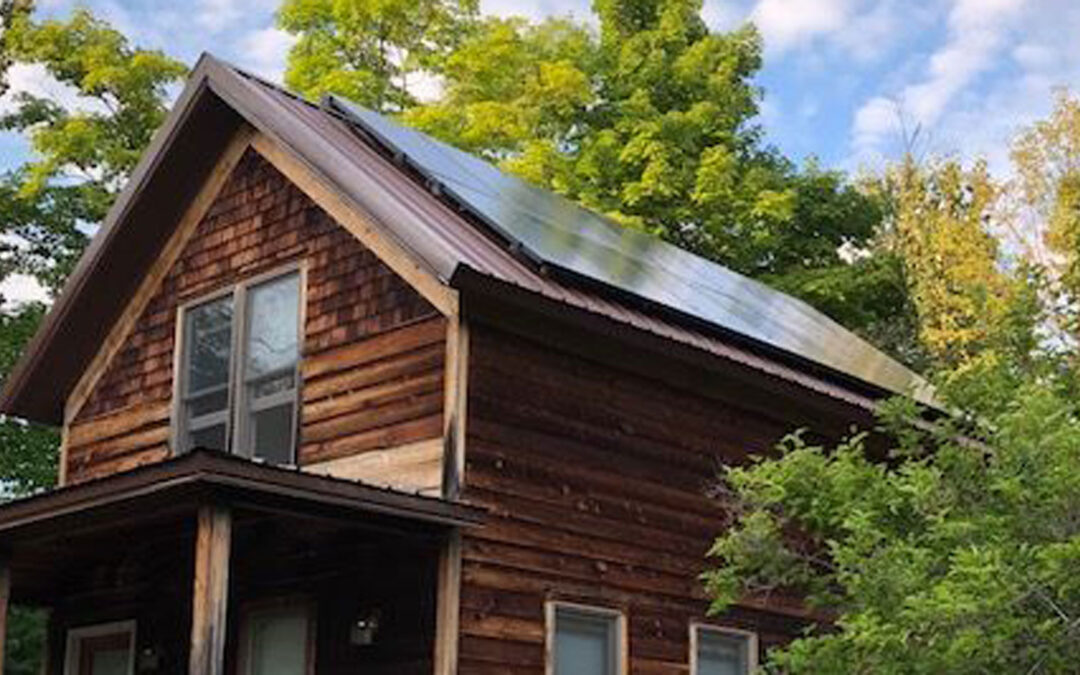
by Heather Allen | Jan 28, 2021 | Advocacy, Community, Policy, PSC Priorities, Public Service Commission, RENEW Wisconsin, Renewables, Solar
COAUTHORS: Michael Vickerman and Lauren Reeg
Wisconsin’s distributed generation (DG) renewable energy market lags behind comparable states.[1] As seen in other states, DG helps diverse groups of individuals and organizations, including businesses, residents, renewable energy customers, and future renewable energy customers, gain access to renewable energy and create a more fair and navigable market.
Whether it takes the form of behind-the-meter generators powering individual customers or larger projects feeding power directly into the distribution grid, DG is a vitally important segment of the renewable energy landscape. Customer investments drive these installations with benefits extending to Wisconsin businesses, residences, governments, nonprofits, and their communities. DG clean energy investments help spur local economic investment, support clean energy jobs, and save Wisconsin money that otherwise would have been spent on importing fossil fuels.
It has long been RENEW’s view that a more fair, clear, and consistent regulatory environment could strengthen the DG market and accelerate the transition to renewable energy in Wisconsin.
In June 2020 the Public Service Commission of Wisconsin (PSC) convened an investigative docket” (5-EI-157) to identify regulatory barriers that effectively put a tight lid on Wisconsin’s DG market, especially customer-sited DG.
This investigation is structured to encourage input and recommendations from organizations and entities that support small-scale DG. RENEW has assembled an expert legal and technical team for this docket—Tim Lindl and Melissa Birchard of Keyes and Fox, and Justin Barnes of EQ Research. We invite you to review the legal and policy analysis we provided to the PSC in August 2020 and in January 2021.[2] A coalition of organizations (Clean Energy Advocates) joined our comments to the PSC, demonstrating broad support for an improved DG market. This ongoing investigation is the best opportunity we’ve had in more than 10 years to advance renewably powered DG before the PSC.
The success of this campaign will strengthen and expand the renewable DG market in Wisconsin. If you support this work, please consider a donation to RENEW today. Together we can champion renewable energy growth in Wisconsin and we are poised to make significant progress in 2021. Join us today!
Wisconsin has fewer net metering customers than comparable states
Net metering customers represent an important segment of the renewable energy market, however, Wisconsin is falling behind. In the last four years, net metered customers in Wisconsin have grown by only 0.11%, well below the increases seen elsewhere in other states since 2015.
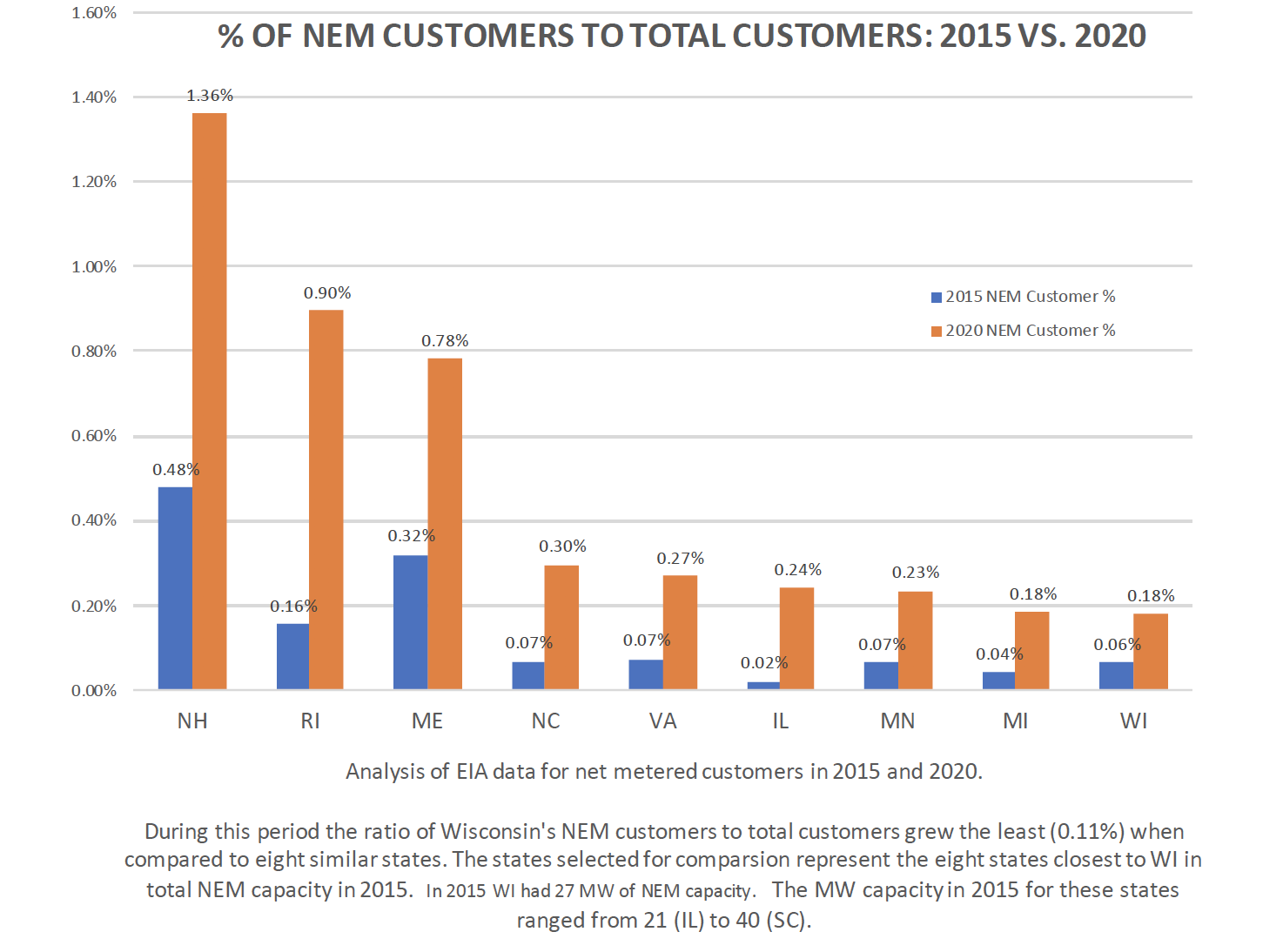
Fair and clear distributed generation policies would grow the renewable energy market in Wisconsin
RENEW Wisconsin aims to enlarge the market share for non-utility-owned renewable DG, including both self-supply and grid-supply projects. In furtherance of that goal, we’ve developed a number of principles that should inform decisions rendered in the DG docket. These include:
- Ensuring developer access to standard offer contracts that have terms for reasonable compensation.
- Giving developers insight into system and utility resource needs to help them target their planned investments.
- Provide larger energy users with better and less restrictive opportunities for larger self-supply resources.
- Standardize and improve net metering rates for all customers across Investor-owned Utilities (IOUs).
In addition to behind-the-meter systems, RENEW has also set forth a path for front-of-meter renewable generation projects up to 20MW. These types of projects should be eligible for 20-year standard offer contracts that are pegged to the same methodologies that utilities use when assigning value to their own generation projects. Leveling the playing field for compensating solar is essential to increasing customer investment opportunities, and expanding the solar workforce.
RENEW is optimistic that by the end of the docket the PSC will land on several beneficial policy changes for promoting renewable DG. These policy changes could be taken up later this year through the anticipated utility rate case filings. Should events unfold along these lines, solar developers and customers stand ready to benefit from a more fair, clear, and consistent renewable energy market.
Join RENEW’s campaign to advance renewable distributed generation in Wisconsin
Since 1991, RENEW has been the state’s preeminent advocate for renewable energy. At the macro scale, solar and wind can outcompete fossil fuels on cost and environmental performance. For the first time in more than a decade, we have an opportunity in Wisconsin to broaden the clean energy transition underway to benefit all customers who place a value in a healthy energy economy. A clear, fair and forward-looking regulatory environment will be crucial to spreading renewable energy across all sectors of society. RENEW is bringing together the leadership and expertise necessary to undo the regulatory barriers that have held renewable DG back, and to replace them with policies to make renewable DG more accessible, affordable, and plentiful across Wisconsin. We hope you will join us in this work by donating today. 2021 promises to be an exciting year!
[1] RENEW evaluated eight states closest to Wisconsin in terms of cumulative Net Energy Metering (NEM) capacity at the end of 2015, i.e., the four states immediately above and below Wisconsin in EIA data listing NEM capacity by state. The eight states closest to WI in NEM capacity in 2015 included NH, RI, ME, NC, VA, IL, MN, and MI. The 2020 data is based on NEM capacity through April 2020. The percentage of total customers uses 2018 total state customer counts for both calculations. Note that Wisconsin has fallen behind states it had previously led. See bar graph for more information.
[2] In the most recent comments filed by Clean Energy Advocates, we looked at this year’s PSC calendar to assess how our recommended actions can make their way into regulatory policy. The DG docket now underway is well-timed in that we expect every Class A investor-owned utility in Wisconsin to file for new rates in 2021.
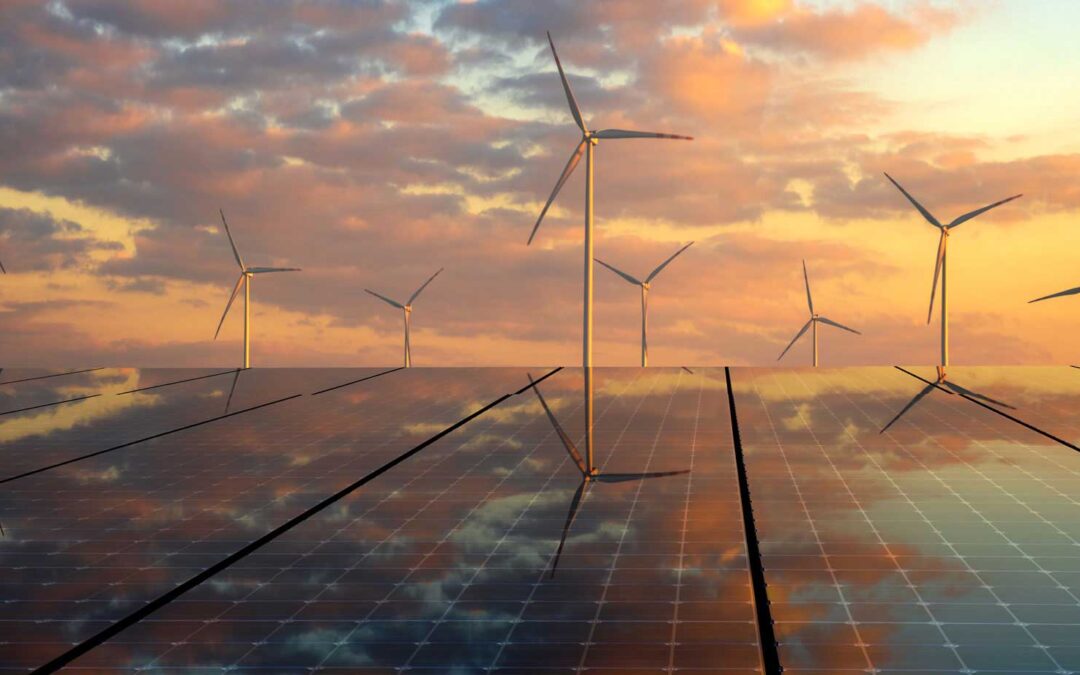
by Michael Vickerman | Aug 19, 2020 | Policy, Public Service Commission, RENEW Wisconsin
In June, the Public Service Commission requested public comments on the latest iteration of its Strategic Energy Assessment (SEA), a study that profiles the state’s electric power industry and surveys how the economic and regulatory landscape will likely evolve over the next six years. The PSC is required by law to update its assessment every two years. The PSC gave the public until August 14th to file comments to the draft study.
In contrast to previous renditions of this process, which were quiet affairs, this year’s draft assessment (Docket 5-ES-110) elicited a veritable torrent of comments from the public. This unprecedented volume of responses reflects a broadening understanding that electric providers are making significant changes to their resource mix to reduce carbon emissions, and that this clean energy transition must continue. With the PSC approving a significant quantity of zero-emission generation in other proceedings, it is heartening to see so many individuals and organizations encouraging the PSC to do more of the same.
Unfortunately, the draft SEA shies away from acknowledging the market realities and environmental constraints that are, today, driving utility procurement decisions quite clearly toward clean energy. This did not go unnoticed. As RENEW noted in its comments, the draft SEA is distinguished more by what is absent from the discussion than by the contents within it.
Chief among the blind spots is the document’s complete silence on climate science and the Governor’s Executive Orders #38 and #52, which enumerated a number of initiatives and goals to put the state on a zero-carbon pathway. Issued in August 2019, Executive Order #38 created a new office within state government, the Office of Sustainability and Clean Energy (OSCE). Over the last nine months, OSCE has been working closely with the Governor’s Task Force on Climate Change, assisting this body in formulating strategies for tackling the effects of climate change in Wisconsin.
OSCE director Maria Redmond submitted comments consisting of recommendations for improving the usefulness and educational value of the SEA.
While reporting on what the utility providers are doing, the PSCW should capitalize on the opportunity to integrate several multi-sector, local, state, and regional efforts to reduce energy consumption, transition to clean energy. The SEA compliments the work of the OSCE and could be a useful tool to measure and verify progress towards meeting our carbon reduction goals. The SEA could also be used to directly address and report on Wisconsin’s progress on reducing the impacts of climate change. As currently written, the assessment does not analyze the overall risks (business as usual) versus the benefits of the transition to a clean energy economy or addressing climate change.
RENEW struck a similar theme in its concluding remarks.
We encourage Commission staff to engage the newly created Office of Sustainability and Clean Energy in a productive way, and find other sources of information beyond the utility responses to data requests. Certainly, RENEW would, if asked, gladly assist Commission staff in the gathering of relevant information prior to the document-drafting process. As noted in the introduction, the Strategic Energy Assessment is the closest thing in the state to a public planning process involving the state’s electric providers. It’s crucially important that this and future iterations of the SEA weave in policy threads that will illuminate pathways to achieving the clean energy goals and objectives that numerous public and private entities in Wisconsin have adopted.
The breadth and volume of comments submitted to the PSC is directly attributable to RENEW’s work to engage stakeholders and the public on the current SEA, highlighted by a webinar organized and led by RENEW policy director Michael Vickerman. The webinar on July 14 presented a primer on the draft SEA, and provided suggested points that could be raised in comments. More than 50 individuals representing numerous organizations in Wisconsin and beyond registered for the webinar. The slide deck prepared for the webinar can be found here.
In 2018, a mere two weeks elapsed between the comment filing deadline and the issuance of the final SEA. This time around, we expect more significant re-writes and additions to the draft.
RENEW thanks the organizations and individuals who weighed in with comments. We are hopeful that the public response to the draft SEA will materialize into needed improvements in the final document.
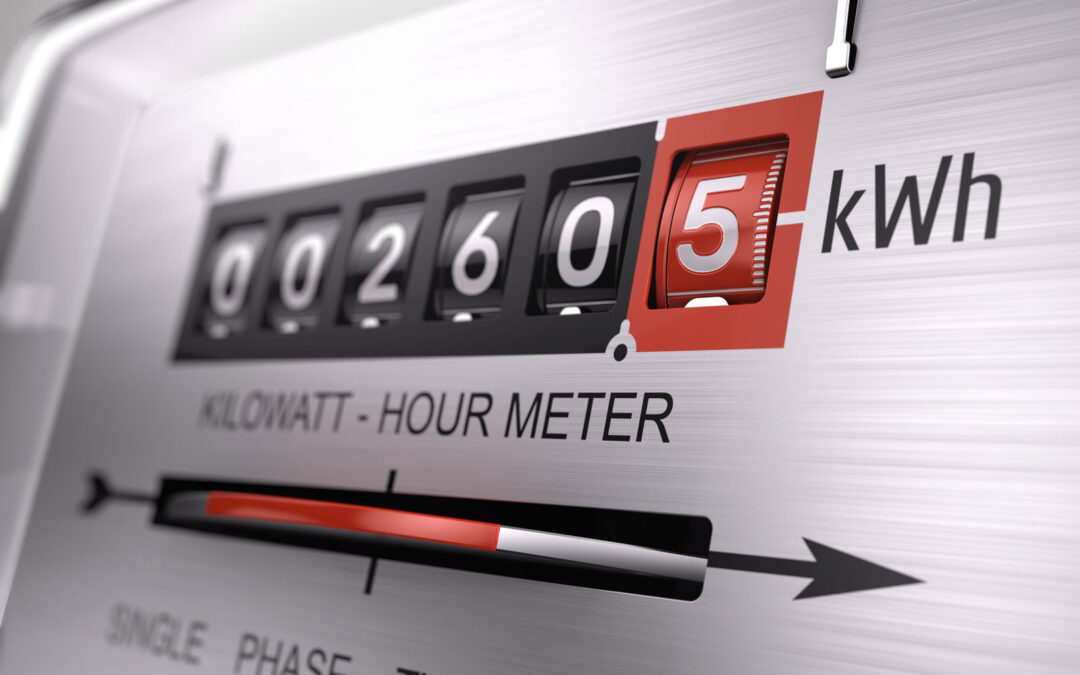
by Heather Allen | Jul 21, 2020 | Advocacy, Policy, RENEW Wisconsin, Renewables, Solar, Utilities
Last week the Federal Energy Regulatory Commission (FERC) dismissed a challenge to state control of net metering. The unanimous decision made on Thursday, July 16, 2020 was great news for RENEW Wisconsin and our members. Homeowners, business and manufacturers that generate their own solar energy can now breathe easy, knowing that the oversight for net metering policy remains in the hands of Wisconsin’s own Public Service Commission.
The New England Ratepayers Association (“NERA”) had petitioned the FERC to take control over net metering policy for the entire country. If the petition were granted, states would have lost the ability to set policy on solar electricity generated by utility customers. The challenge to state control of net metering, the policy that enables energy producers to get bill credit for the extra energy they push back on to the grid, threatened the solar investments of thousands of families and businesses in Wisconsin.
RENEW joined dozens of other clean energy advocacy organizations in a petition to dismiss the issue and encouraged Wisconsin’s political leadership to get involved. Many elected officials from around the country joined in the fight to protect net metering including Wisconsin’s own, Attorney General Josh Kaul.
Check out the background on this story and how RENEW fought to protect Wisconsinites generating clean energy on their homes and businesses.
by Jane McCurry | Jul 10, 2020 | Electric Vehicles, Policy
This morning, the Wisconsin Supreme Court ruled that three of Governor Evers’ budget vetoes are unconstitutional. Included in the three budget vetoes was the allocation of $10 million of Volkswagen Settlement Funding for electric vehicle charging infrastructure. RENEW has been working with partners and the Department of Administration to determine the most effective use of this $10 million since the state budget passed last July.
We are extremely disappointed with this setback. We had hoped to see this money spent over the next year to build a comprehensive network of charging infrastructure that would allow Wisconsinites to easily and confidently drive anywhere in the state with an electric vehicle.
There is a silver lining: Volkswagen Settlement Funds are strictly allocated based on a federal settlement that stipulates this funding must be spent to reduce diesel and gasoline emissions. RENEW will continue to fight to ensure this money is reallocated to electric vehicle charging infrastructure, as we believe this is the best way to support the transition to a clean, homegrown transportation system.
For more information, see RENEW Wisconsin’s previous blogs about Volkswagen Settlement Funding:
July 3, 2019 • Governor Evers Signs Budget Designating VW Money to Electric Vehicle Charging Stations
May 31, 2019 • Electric Charging Station Funding Takes Another Ste
March 6, 2019 • Volkswagen Settlement Update
October 22, 2018 • The “Volkswagen Settlement” – A Big Opportunity for Electric Vehicles






